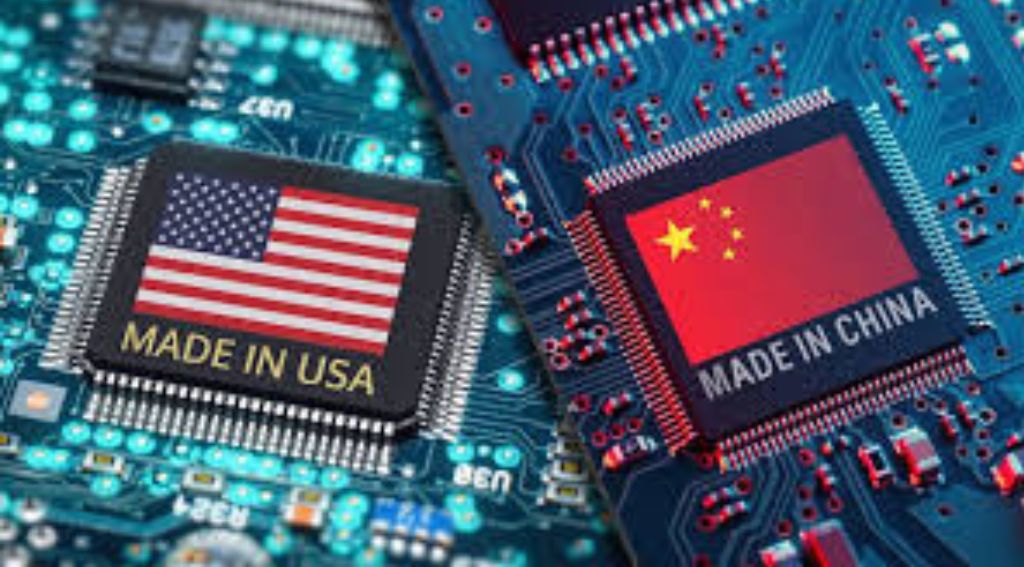Impact of China’s leap forward in advanced chip manufacturing

China’s leading chip manufacturers are expected to produce next-generation smartphone processors as early as this year. SMIC, the country’s largest chipmaker, has established new semiconductor production lines in Shanghai to mass-produce chips designed by tech giant Huawei.
This initiative aligns with Beijing’s aspirations for chip self-sufficiency, even as the Biden administration tightened export restrictions on advanced chipmaking equipment last October, citing national security concerns.
Towards more miniaturized chips
SMIC plans to utilize its existing inventory of US and Dutch-made equipment to manufacture more miniaturized 5-nanometre chips. These chips, designed by Huawei’s HiSilicon unit, are destined for new versions of its premium smartphones. Although 5nm chips are still a generation behind the current cutting-edge 3nm ones, this move demonstrates that China’s semiconductor industry is making steady progress, despite US export controls.
Huawei had previously surprised the industry with its advancements when it launched its Mate 60 Pro premium smartphone in August, featuring a 7nm processor. This phone significantly increased its shipments in China in the fourth quarter, proving to be a big hit with consumers.
If the production is deemed successful enough for smartphones, Huawei’s most potent artificial intelligence processor, the Ascend 920, will also be produced at 5nm by SMIC. This move would narrow the gap between China’s alternative AI chips and Nvidia’s highly sought-after graphics processing units.
However, the journey towards creating more advanced chips has not been without its challenges. SMIC has had to charge 40 to 50 per cent more for products from its 5nm and 7nm fabrication nodes than Taiwan’s TSMC does at the same nodes. Furthermore, SMIC’s yield — the number of chips considered good enough to ship to customers — is also less than one-third of TSMC’s. This raises the question: Is this merely a demonstration by Huawei and SMIC to show the Chinese government that it can be done? Only time will tell.
How will it affect US China relations?
The advancement of China’s chip production capabilities could have significant implications for US-China relations.
Technological Competition: The US has taken unprecedented steps to limit the sale of advanced computer chips to China, escalating efforts to contain Beijing’s tech and military ambitions1. This move is designed to cut off supplies of critical technology to China that may be used across sectors including advanced computing and weapons manufacture1. However, China’s progress in chip production could intensify the technological competition between the two nations234.
Supply chain restructuring: The US initiatives represent a profound turn toward competition with China in the high-tech realm5. They also highlight an effort to restructure the complex, multinational supply chains centred on East Asia that manufacture hundreds of billions of dollars of semiconductors a year. As US restrictions mount, and sales of certain technologies to China flag, the once-unimaginable process of reorienting semiconductor supply chains will become an ever-present reality.
Economic impact: The US restrictions and China’s response could have economic implications. For instance, SMIC, China’s top chipmaker, has had to charge 40 to 50 per cent more for products from its 5nm and 7nm fabrication nodes than Taiwan’s TSMC does at the same nodes5. This could affect the global chip market and potentially lead to higher prices for consumers6.
It is evident that China’s advancements in chip production could escalate the technological competition between the US and China, potentially leading to a restructuring of global supply chains and economic impacts.
However, the precise impact will depend on future policy decisions and market dynamics.
Stop Press – AIBC Eurasia takes place in Dubai 25 – 27 February !
Charles Schwab’s Calculated Approach to Bitcoin ETFs (aibc.world)
Success of Bitcoin EFTS cryptocurrency sell-off – a week on – AIBC News






